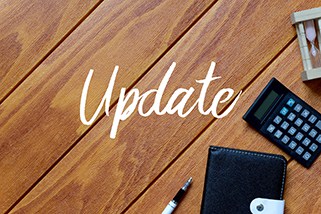This article, "ASU 2021-03: Updated Guidance on Goodwill Impairment," originally appeared on KeiterCPA.com.
Posted on April 22, 2021
By Amanda Gill, Business Assurance & Advisory Services Supervisor | Not-for-Profit Team
Accounting Standards Update Aims to Simplify Goodwill Triggering Event Evaluation Process
In March 2021, the Financial Accounting Standards Board (“FASB”) issued updated guidance on goodwill impairment. Accounting Standards Update 2021-03-Intangibles – Goodwill and Other (Topic 350): Accounting Alternative for Evaluating Triggering Events (“ASU 2021-03”) attempts to simplify the goodwill triggering event evaluation process for private companies and not-for-profit entities.
Existing GAAP Guidance Regarding Goodwill Impairment Analysis
GAAP guidance requires that organizations continually monitor goodwill for impairment throughout the year by evaluating goodwill impairment triggering events as they occur. Triggering events could include macroeconomic conditions (e.g., deterioration of the general economy), overall financial performance (e.g., negative or declining cash flows, shortfalls from budgeted performance), or other relevant entity-specific events (e.g., decrease in donor base, disposition of a program, etc.). These triggering events could suggest that goodwill is impaired (i.e., it is more likely than not the fair value of the reporting unit or entity, as appropriate, is below its carrying value). If goodwill is impaired, the triggering event date is used as the measurement date.
Concerns about Existing Practice
As the COVID-19 pandemic has ebbed and flowed, organizations have experienced many challenges and potentially triggering events in 2020 and 2021. This fluctuation and uncertainty from quarter to quarter has made the evaluation process even more challenging for organizations. Prior to COVID-19, many not-for-profit organizations and private companies had already expressed concerns about the costs, complexities, and value of evaluating triggering events throughout the year when GAAP compliant financial statement are only issued at the reporting date. COVID-19 has only intensified these concerns.
New Alternative GAAP Guidance
The FASB has responded to these concerns and questions about goodwill impairment by issuing ASU 2021-03. ASU 2021-03 provides an alternative for private companies and not-for-profit organizations by eliminating the ongoing triggering event analysis and instead allows organizations to evaluate the facts and circumstances as of the end of the reporting period to determine whether goodwill impairment has occurred. For entities who elect this alternative, the assessment is limited to the reporting date only. The scope of the proposed alternative is limited to goodwill that is tested for impairment in accordance with Accounting Standards Codification Subtopic 350-20, Intangibles—Goodwill and Other—Goodwill. Note that for private companies and not-for-profit organizations that have elected to amortize goodwill, the adoption of ASU 2021-03 is still applicable.
Effective Date of ASU 2021-03 for Not-for-Profits and Private Companies
The amendments in this ASU are effective on a prospective basis for fiscal years beginning after December 15, 2019. Early adoption is permitted for both interim and annual financial statements that have not yet been issued as of March 30, 2021. The amendments in the ASU also include an unconditional one-time option for entities to adopt the alternative prospectively after its effective date. No additional disclosures would be required.
Question on adoption of ASU 2021-03 for your organization? Contact your Opportunity Advisor or Email | Call: 804.747.0000. We are here to help.
The information contained within this article is provided for informational purposes only and is current as of the date published. Online readers are advised not to act upon this information without seeking the service of a professional accountant, as this article is not a substitute for obtaining accounting, tax, or financial advice from a professional accountant.


